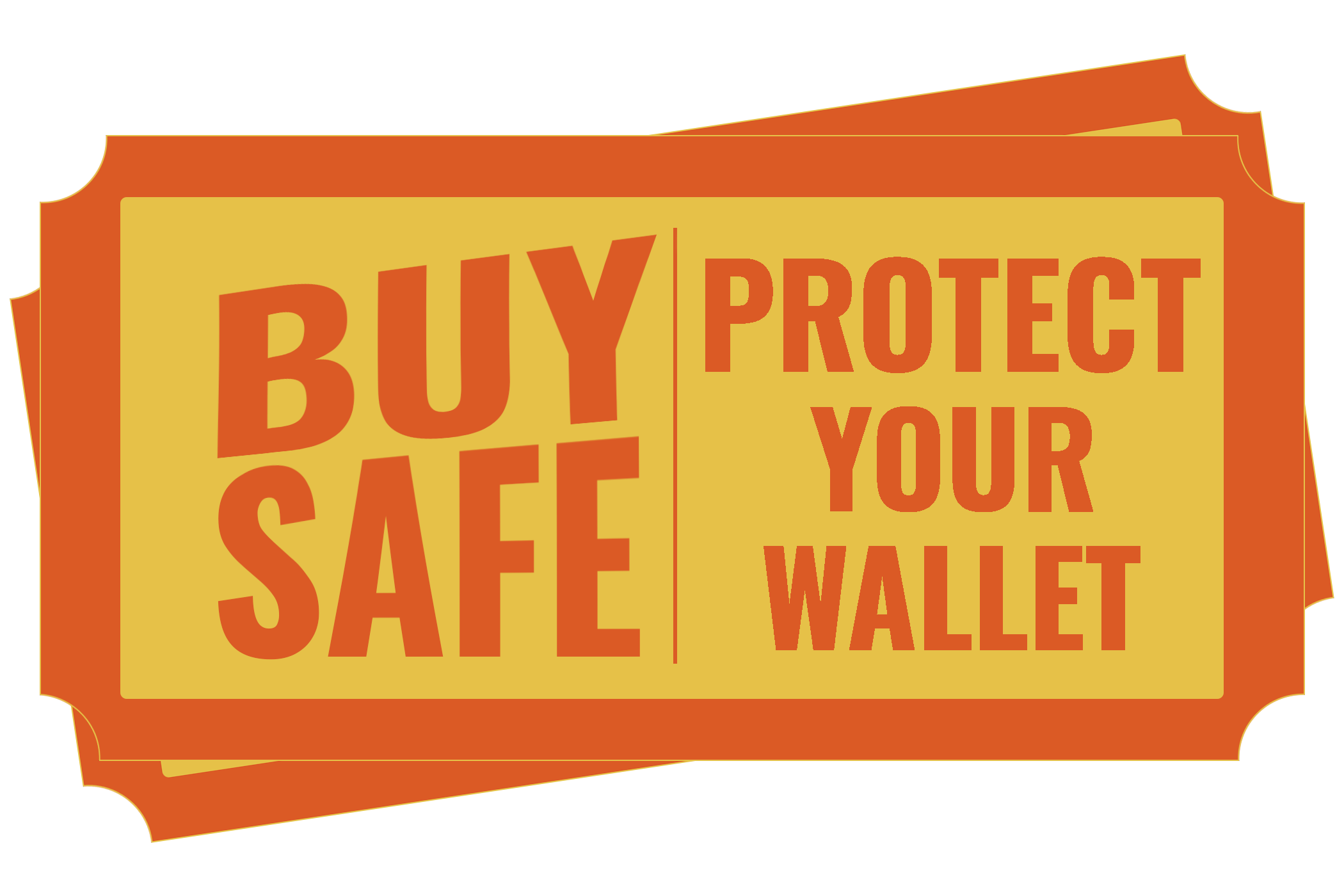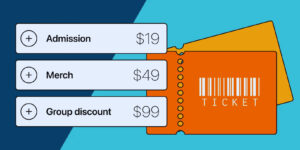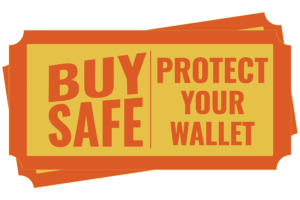Introduction:
In an age where online transactions are a part of our daily lives, the thrill of purchasing tickets to concerts, sports events, and festivals often comes with the risk of falling victim to ticket scams. Every year, countless fans find themselves duped by fraudsters who capitalize on their enthusiasm and excitement. Fortunately, by staying informed and vigilant, you can protect yourself from these scams.
In this guide, we’ll cover practical tips on how to avoid ticket scams and enjoy your events worry-free.
Understanding Ticket Scams
Ticket scams typically involve the sale of fake, non-existent, or overpriced tickets. Scammers often use various tactics to lure unsuspecting buyers, including:
Fake Websites: Fraudulent ticket-selling websites that mimic legitimate ones.
Social Media Scams: Ads or posts offering tickets at a fraction of the normal price.
Email Phishing: Emails claiming to be from reputable ticket vendors, often containing malicious links.
Unauthorized Resellers: Sellers who do not have the right to sell tickets but do so anyway.
Recognizing these tactics is the first step toward protecting yourself.
1. Stick to Official Sources
One of the most effective ways to avoid ticket scams is to buy tickets from official sources. These include:
Official Box Offices: Purchasing directly from the venue’s box office ensures you get authentic tickets.
Reputable Ticketing Websites: Websites like Ticketmaster, Live Nation, and AXS are known for their legitimacy. Always double-check the URL to ensure it is correct and secure (look for “https” in the address).
Tip: Use Trusted Apps
Many reputable events have official mobile apps where you can purchase tickets safely. Downloading these apps from the Apple App Store or Google Play Store is a great way to secure your ticket purchases.
2. Verify the Seller
If you decide to buy tickets from a third-party seller or marketplace (like StubHub or SeatGeek), take these precautions:
Check Seller Ratings: Most reputable platforms allow buyers to rate sellers. Always look for high ratings and read reviews.
Look for Verified Listings: Some marketplaces have a verification process for sellers. Ensure the tickets are marked as verified.
Contact the Seller: If possible, reach out to the seller for clarification about the tickets before making a purchase.
Tip: Use Social Media Wisely
If you see a ticket offer on social media, research the seller. Check their profile for authenticity. A legitimate seller usually has a well-established account with positive feedback from buyers.
3. Be Wary of Too-Good-To-Be-True Deals
Scammers often lure buyers with unbelievably low prices. If a ticket is significantly cheaper than its market value, it’s essential to approach the deal with caution. Consider the following:
Research Market Prices: Before buying, check the average ticket price for the event. If a deal looks too good to be true, it probably is.
Avoid Buying Last-Minute: Last-minute deals can sometimes lead to scams, as they may be more likely to be fake tickets or stolen accounts.
Tip: Set Price Alerts
Consider using services that notify you when prices drop to help you find fair deals on tickets. This strategy can save you money while ensuring you stay within the average market price.
4. Pay Safely
The payment method you choose can impact your safety when purchasing tickets. Here are some guidelines to follow:
Use Credit Cards: Credit cards often come with fraud protection, allowing you to dispute unauthorized charges. Avoid wire transfers or cash payments, as these methods provide little recourse if something goes wrong.
Secure Payment Platforms: If using a peer-to-peer payment app like PayPal, ensure it has buyer protection policies in place.
Tip: Look for SSL Certificates
When buying tickets online, always check for SSL certificates (look for a padlock icon in the browser address bar). This ensures that the website encrypts your information, making your transaction safer.
5. Understand the Ticketing Process
Being informed about the ticketing process can help you spot scams more easily. Here are some essential points to consider:
Know the Event: Familiarize yourself with the event and the ticketing options available. This knowledge can help you distinguish between legitimate and fraudulent offers.
Read the Fine Print: Understand the terms and conditions associated with your ticket purchase, including refund and transfer policies.
Tip: Familiarize Yourself with the Venue’s Policies
Each venue may have specific policies regarding ticket transfers, refunds, and entry requirements. Knowing these policies can help you spot scams that do not adhere to them.
6. Watch for Common Red Flags
Being aware of red flags can save you from scams. Here are some warning signs to look out for:
Poor Quality Listings: If the ticket listing is poorly written or lacks detailed information, it could be a scam.
Limited Contact Information: Scammers often provide minimal contact information. Legitimate sellers usually offer multiple ways to reach them.
Pressure Tactics: If a seller pressures you to make a quick decision or suggests that the deal will expire soon, it’s a warning sign. Legitimate sellers understand the need for buyers to do their research.
Tip: Trust Your Instincts
If something feels off about a transaction, trust your gut. It’s better to walk away from a deal than to risk losing your money.
7. Use Ticket Resale Platforms Wisely
If you’re considering buying from resale platforms, here are some tips to do so safely:
Read Reviews and Ratings: Look for reviews and ratings of the platform itself before making a purchase.
Understand the Platform’s Policies: Familiarize yourself with the platform’s policies regarding ticket authenticity, cancellations, and refunds.
Tip: Look for Guarantees
Many resale platforms offer guarantees on ticket authenticity. Familiarizing yourself with these guarantees can provide added peace of mind.
8. Protect Your Personal Information
In addition to financial information, be cautious about sharing personal data when purchasing tickets. Here are some guidelines:
Avoid Unnecessary Information Requests: Legitimate sellers typically only need essential information (like your name and email address) to process a sale.
Be Cautious with Public Wi-Fi: Avoid making purchases over public Wi-Fi, as it can be insecure. Use a VPN or your mobile data instead.
Tip: Regularly Monitor Your Accounts
Keep an eye on your bank and credit card statements for any unauthorized charges. Reporting suspicious activity early can help mitigate losses.
9. Report Scams
If you encounter a ticket scam, it’s crucial to report it. This action helps protect others from falling victim. You can report scams to:
Local Authorities: Contact your local police department if you believe you’ve been scammed.
Consumer Protection Agencies: Agencies like the Federal Trade Commission (FTC) in the U.S. or equivalent organizations in other countries provide resources for reporting scams.
The Platform: If the scam occurred through a specific website or platform, report it directly to them.
Tip: Spread the Word
Share your experience with friends and family, and consider posting about it on social media. Raising awareness can help prevent others from falling victim to the same scams.
Conclusion
Avoiding ticket scams requires diligence and awareness. By sticking to official sources, verifying sellers, and being cautious with your personal and payment information, you can enjoy the excitement of live events without the fear of being scammed.
Remember, it’s always better to take your time and research thoroughly than to rush into a deal that seems too good to be true. With the right precautions in place, you can enjoy your favorite events worry-free!
Frequently Asked Questions (FAQs)
1. What should I do if I suspect I’ve purchased a fake ticket?
If you suspect you’ve bought a fake ticket, contact the seller immediately for a refund. If that fails, reach out to your bank or credit card company to dispute the charge.
2. Are electronic tickets safer than physical tickets?
Both electronic and physical tickets can be subject to scams. The key is to purchase from reputable sources, regardless of the format.
3. Can I trust ticket resale platforms?
Yes, many ticket resale platforms are legitimate, but always research and verify the platform’s policies and seller ratings before making a purchase.
4. What is the best way to spot a fake ticket?
Look for inconsistencies in the ticket details, poor print quality, and unusual security features. Legitimate tickets will have clear branding and authentic security elements.
5. How can I protect my personal information when buying tickets?
Only provide essential information needed for the purchase, avoid using public Wi-Fi, and look for secure payment methods.








